
Leadership provides the impetus to help schools become more efficient and to improve student outcomes.
Refer to these student leadership qualities that need implementation in today’s education.
Educational leaders such as principals, department heads, and teachers help develop, maintain, and progress a school community and learner success.
The urgent need for effective leadership in education becomes increasingly important. Therefore, schools must adapt to increasingly intricate and quickly evolving educational realities.
The following article talks about leadership, its importance, and qualities required as a student leader. Read on and find how and why leadership should be emphasized in 21st century education systems.
Contents
- 1 What is Leadership in Education?
- 2 What is the Importance of Leadership in Education?
- 2.1 1. Quality Education
- 2.2 2. Building Connections
- 2.3 3. Enhancing School Culture
- 2.4 4. Community Outreach
- 2.5 5. Professional Development
- 2.6 6. Driving Innovation and Adaptability
- 2.7 7. Fostering Lifelong Learning
- 2.8 8. Promoting Equity and Inclusivity
- 2.9 9. Forming Resilient Education Systems
- 2.10 10. Personal Character Growth
- 3 Leadership Qualities to Learn in Education
- 4 Wrapping Thoughts
What is Leadership in Education?
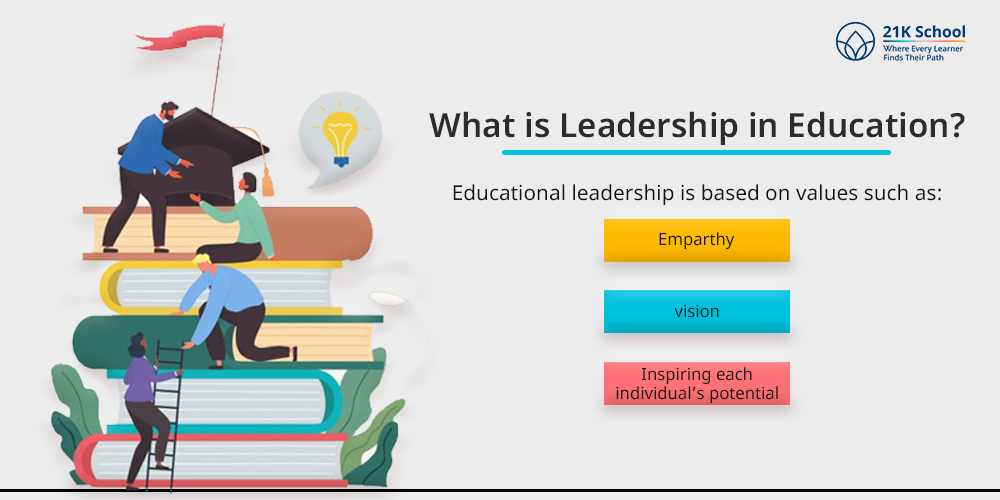
Educational leadership is about influencing and motivating everyone in the school to work together toward the mutual goals of growth. Decision making, encouraging teamwork, and helping cultivate a supportive school environment are all part of educational leadership.
Educational leadership is based on values such as empathy, vision, and inspiring each individual’s potential. Educational leaders influence the way students learn.
They also influence the conditions in which they do so by fostering teacher growth and inspiring curricular innovation.
What is the Importance of Leadership in Education?
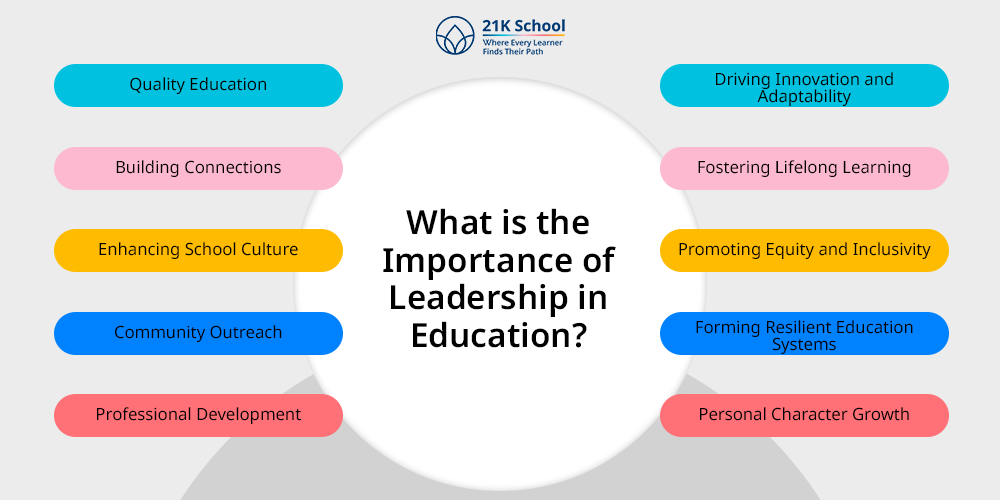
1. Quality Education

Good leadership raises the standard of education by guiding learning toward desired goals and assisting teachers with their development. Leaders support learning that’s focused on the needs and diverse backgrounds of all students.
A strong leader motivates teachers to use research-proven ways that enhance student engagement and understanding.
2. Building Connections

Leaders build connections that unite school community members with each other. Developing these relationships promotes trust and collaboration, which greatly benefit the students.
Leaders who encourage open dialogue and genuinely listen to others inspires teamwork and lifts spirits.
3. Enhancing School Culture

A positive learning environment in schools promotes respect, responsibility, and the sense of belonging for everyone within the community. School leaders set the standards and examples they hope everyone in the school will follow.
A supportive and responsive school environment is created through the efforts of strong leaders.
4. Community Outreach

Only leaders who involve the community outside the school have long-lasting relationships with their community. They also boost student achievement and earn school recognition within the community.
Partnering with experts, and arranging experiences beyond the classroom are of the hundred ways of sponsoring community activities.
5. Professional Development

Leaders understand that teacher development plays a crucial role in the achievement of students. They conduct frequent workshops, stimulate peer mentoring, and motivate teachers to keep improving their skills.
Teacher professional development guided by great school leadership keeps educators dynamic, adept, and informed about new developments in education.
Peep into these 5 resources for professional development of teachers.
6. Driving Innovation and Adaptability

Now more than ever, flexibility and agility are invaluable qualities. Leaders encourage teachers to experiment with new ways to teach and adapt their curricula to make use of modern technologies.
Flexible leaders respond to difficulties such as a pandemic by introducing innovative methods like hybrid schooling.
7. Fostering Lifelong Learning
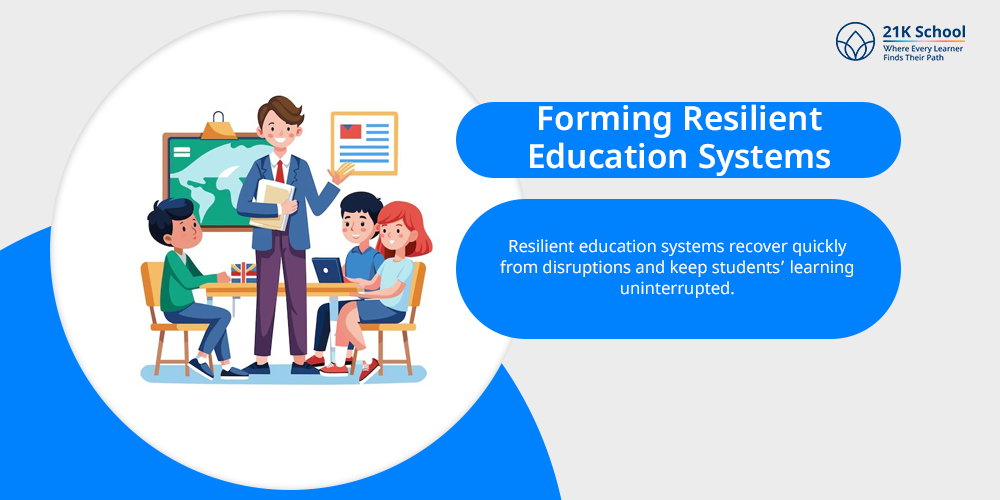
Leaders in the field demonstrate passion for lifelong learning by showing interest in development. Education leaders who continually learn inspire similar behaviors among the entire school community.
These students learn essential skills such as problem-solving, self-drive, and an ongoing pursuit for self-development.
8. Promoting Equity and Inclusivity
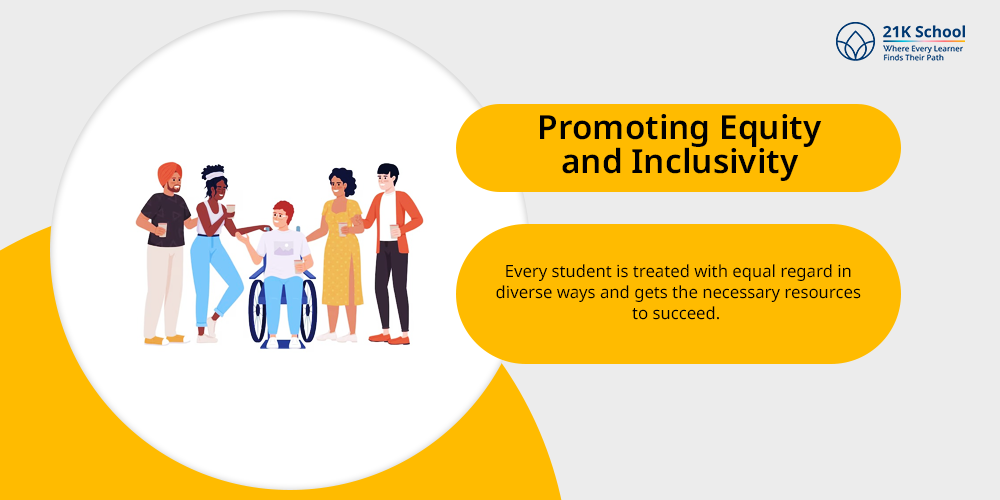
Every student is treated with equal regard in diverse ways and gets the necessary resources to succeed. This strengthens the feeling of acceptance and equality among everyone.
Leadership that puts equity at its core often leads to the adoption of differentiated instruction, anti-bullying policies, and providing extra assistance.
Read more to find critical components of equity-focused teaching.
9. Forming Resilient Education Systems
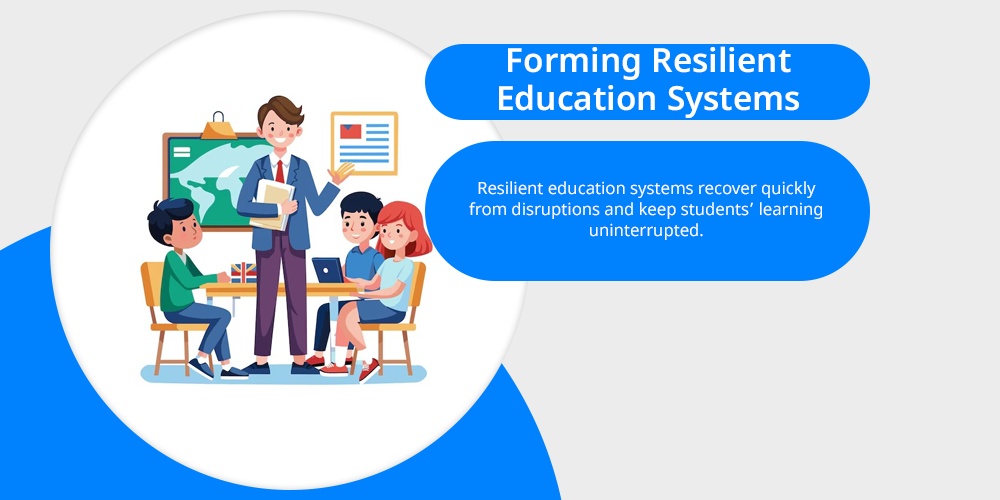
Resilient education systems recover quickly from disruptions and keep students’ learning uninterrupted. Leaders help schools become resilient enough to handle uncertainties and difficulties.
They create contingencies, prepare teachers for crises and emphasize how to deal with distress effectively.
10. Personal Character Growth

Leadership fosters the overall growth of students and professionals alike. People who practice leadership values strive to be honest, caring, and patient individuals.
Leaders guide and exemplify the traits of integrity and responsibility in those around them.
Leadership Qualities to Learn in Education
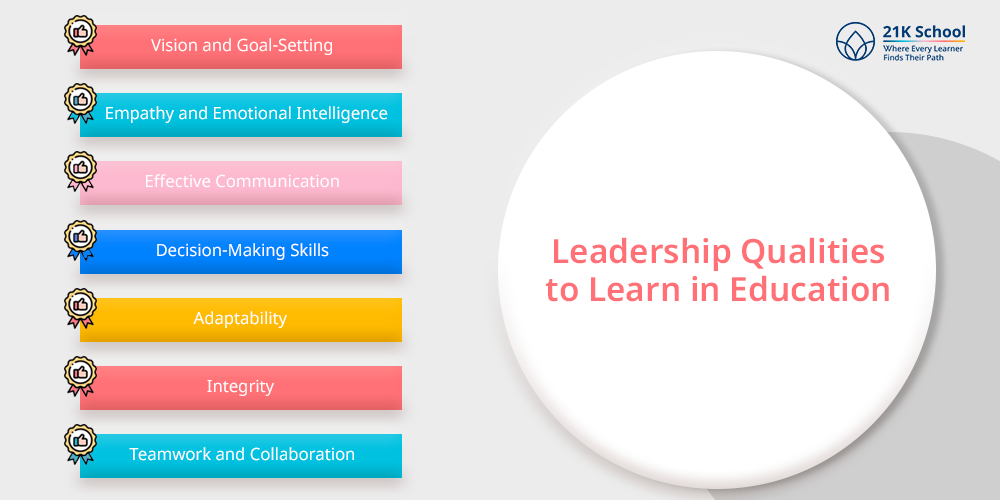
Strong leadership in education emerges from cultivating important personal and professional attributes. It inspires, supports, and directs people toward shared outcomes.
Educational leaders at all levels need to possess the qualities that enable them to address the ever-changing needs of their community and learners.
The following traits make the strongest leaders in education settings. Each one plays a vital role in effective leadership in educational settings:
1. Vision and Goal-Setting

The first step for an influential leader is to establish a student-centered, welcoming, and vision–oriented goals. This helps shape the school’s overall mission by making sure every action and decision supports the identified objectives for the future.
- Example in education: The school principal could aim to enhance student literacy throughout the school and establish numerical targets to track the outcome annually.
2. Empathy and Emotional Intelligence
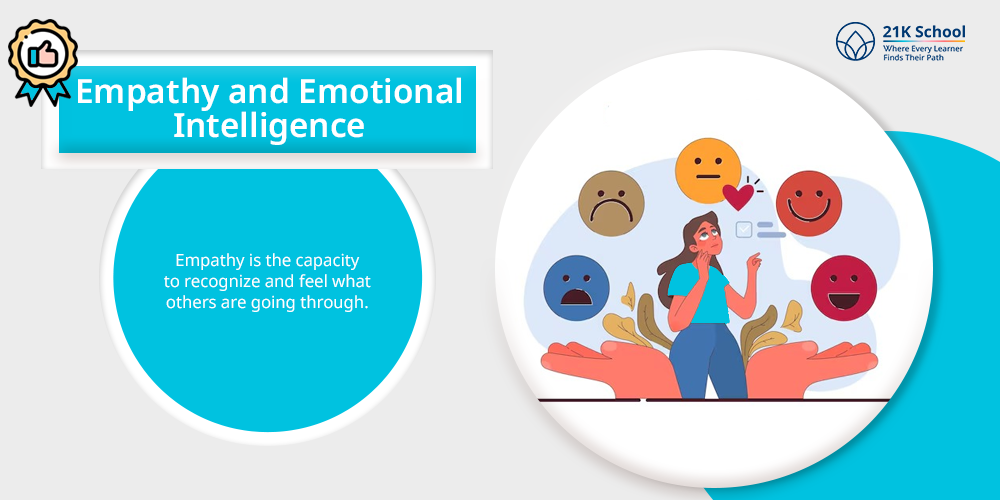
Empathy is the capacity to recognize and feel what others are going through. Having high emotional intelligence means understanding and controlling your thoughts and feelings, and knowing how to interact with others.
Adequate application of these elements is essential when dealing with the people in aspects of education.
- Example in education: A teacher who sees a student is silent might talk to them in private to see how they’re doing, instead of punishing them for being quiet.
3. Effective Communication

Effective leadership depends on leaders being able to communicate openly and transparently with others. It includes effectively communicating as well as attentively hearing and thoughtfully responding.
Dive in to know the importance of communication skills.
- Example in education: The head of department explains coming changes, invites input from team members and offers resources to make transition easier.
4. Decision-Making Skills
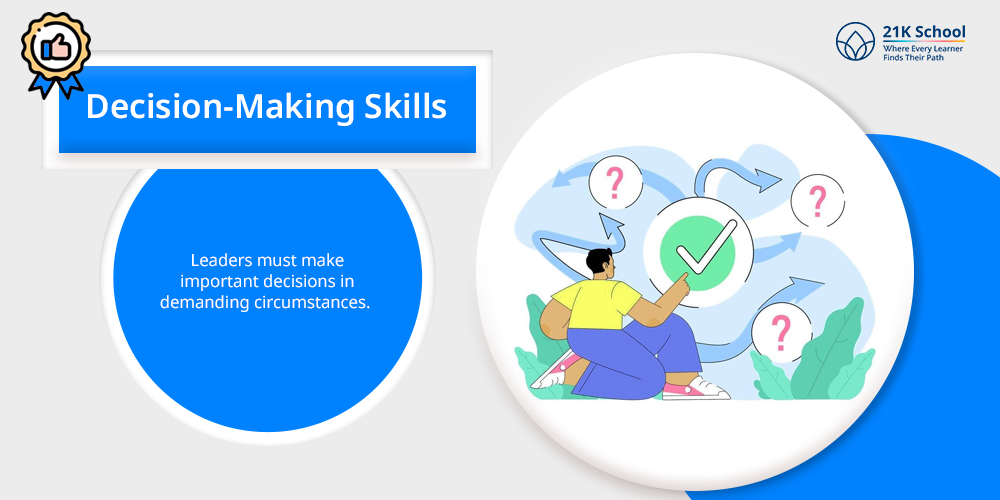
Leaders must make important decisions in demanding circumstances. A leader exercises effective decision-making by carefully analyzing options, staying impartial, and profoundly considering the needs of students and staff.
- Example in education: The school leader decides to move the school day to start later as a result of learning about the benefits of increased sleep for students.
5. Adaptability
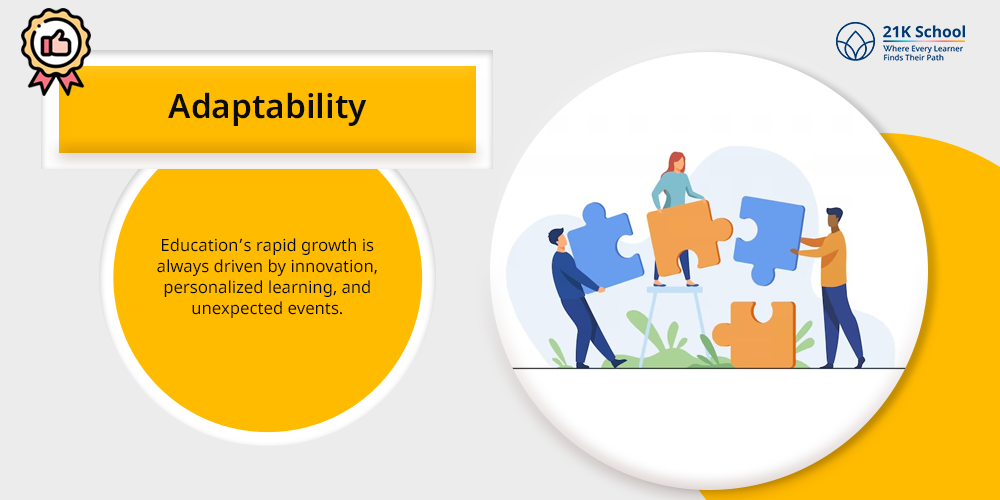
Education’s rapid growth is always driven by innovation, personalized learning, and unexpected events. Flexible leaders are able to respond to change easily and help those around them adapt.
- Example in education: A leader swiftly adopts and shares new technologies with teachers and students as the school moves to online instruction.
6. Integrity

Having integrity involves always acting honestly, ethically, and with consistency. Integrity helps leaders build a reliable relationship and gain the confidence of those in their care.
- Example in education: A leader treats all cases of academic dishonesty in a fair and consistent manner.
7. Teamwork and Collaboration

Successful leaders realize that teamwork plays a vital role in their mission. They encourage collaboration and welcome all team members to take an active role.
- Example in education: A teacher facilitates an interdisciplinary project among several classes. And encourages all teachers participating to work together for both lesson planning along with evaluation.
Wrapping Thoughts
Actively cultivating shared goals, promoting teamwork, and championing quality are essential aspects of great leadership within educational institutions.
Effective leadership brings about higher standards for teachers, and ensures fairness across all corners of the educational system.
It further fosters creative manifestations, and prepares systems to adapt to new challenges.
Educational leaders raising the standard by embodying lifelong learning, collaboration, and integrity inspire both staff and students alike.
Focusing on leaders of today leads to better schools and healthier communities for years to come.
